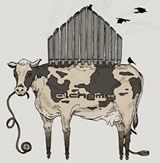useNature.com ... Holistic Therapy Lifestyle Foundation
Diet & Nutrition Foundation
A Balanced Diet to achieve Good Health
Physical & Mental aspects in relation to your Health
Article: Foundation of Nutritional Health - Part 3 -
Holistic Diet & Nutritional Health Foundation
... nutritional strategies to support a health lifestyle
..... by Dieter Luske N.D.-D.C.H.-D.M.H.-D.H
Holistic Therapy Consultant - Gold Coast - Canungra
"Holistic Therapies” .. the natural way to free yourself from physical and mental decline.
* Health is more than a good diet, everything is inter-connected, if anything is out of balance it will effect everything else.
The "Optimal Lifestyle Diet"
This section will introduce a viable balanced Diet, focusing on good nutrition.
There are more Confusions about Diets and Nutrition than ever!
One could have thought that with better scientific knowledge everyone would be on the same page, but unfortunately this is not the case at all, it may even be worse than ever. Unscrupulous marketing principles, as well as food companies providing information to suit their own goals rather then nutritional facts, have further depleted scientific nutritional details. (see also > Diet Confusion )
So, how do we determine what is right or wrong?
Here are some basic Rules:
-
There is NO Diet to fit all people; go by the age old wisdom of: "one man's bread is the other man's poison".
Therefore, if someone on a Vegetarian, Paleo, Atkinson, Zone, Vegan, Fruitarian, Macrobiotics or any other Diet tells you, their Diet is the best, just answer:" it may be the best for you, but may not be for me".
However, all these diets have something in common, they "eliminate" processed and refined food, as well as typical non-nutritional items, such as sugar. -
We are all different, we come from different countries with different historical nutritional backgrounds, with different climates. We are also different, because we have different jobs, energy requirements, health, constitution, genes, different stresses, worries, problems or no problems at all.Take all that into account before you go on to a so called best diet ever.
- Reasons for changing a Diet: There is a huge difference why you go on a diet different to the one you are at present. YES, you are on a diet right now, the food you eat and fluid you drink is your "Personal Diet". Most diets can be improved, but often it may change altogether for reason of a health problem, a weight problem or a lifestyle change.
A diet for a therapeutic reason may be totally different then a normal balanced lifestyle diet. A therapeutic diet aims at achieving something specific. A weight loss diet to lose weight, and a general balanced diet, simply to make sure you get the right nutrition to stay healthy, making sure that a "bad diet" does not make you sick.
What is different with the useNature "Optimal Lifestyle Diet"?
It is aimed at being a general healthy diet for general healthy people. It is a foundation diet.
Firstly, you would start with that Diet before you go onto a therapeutic type diet.
Secondly, it is a diet to fall back on, after a more specific diet. This is extremely important, as most people on a special diet, go back to their normal diet which simply will start their former condition all over again.
Thirdly, the Optimal Lifestyle Diet is easily modified to suit different people, as the ground rules, the foundation has been laid.
The Optimal Lifestyle Diet ...
... is a Carbohydrate, Protein and Fat Balanced Nutritional Guideline.
over the last 20 years, a deeper understanding, backed by scientific data, of how food affects our metabolism, as well as our general health, has changed the way we think about diet.
Diet affects the processes of aging and of many disease states such as:
Arthritis, cardiovascular disease, multiple sclerosis, blood sugar problems, skin problems and chronic fatigue.
Applying simple dietary rules has brought pronounced results for people who have been trying to lose weight for years.
Food has a strong influence on the chemistry of the body.
- The balance of protein, carbohydrate and fat in our diet determines the amount of glucose (sugar) reaching the blood.
- This balance also affects the amount of the hormone insulin, which is secreted in response to glucose.
- Insulin is a broad acting hormone. Its most well known action is to increase the uptake and utilisation of glucose in the body.
- But, Insulin also inhibits body fat burning as a source of energy, promotes cell growth, and changes the balance of hormones and chemicals to a more inflammatory state.
- Eating sugar (refined carbohydrates) results in a rapid elevation of glucose and the equally rapid release of insulin.
- Insulin instructs the body to use "Glucose as a fuel" - and not to burn "fat reserves" for energy .
- That's why it becomes extremely difficult to lose weight when insulin is raised.
The Optimal Lifestyle Diet attempts to achieve the opposite:
-
To keep blood sugar and insulin levels within a tight range and thereby stimulate fat utilisation.
-
Elevated insulin also promotes the release of substances responsible for inflammation (such as messenger hormones called "bad eicosanoids"), blood pressure and many other negative effects, which contribute to chronic degenerative diseases.
-
The Diet is thereby able to affect many disease states - including obesity by balancing the hormonal response to food.
Weight Loss
Any diet, which fails to recognise these hormonal responses to food, may be fundamentally flawed, which could explain the failure of many diets to provide effective weight loss and improved health.
Typical weight loss diets may appear sound, but a diet for long-term and gradual weight loss will:
-
Achieve proper regulation of blood glucose and insulin response
-
Provide adequate nutrition
- Avoid causing the patient to feel hunger pangs.
With the Optimal Lifestyle Diet, you will invariably find that you need to eat far less than before. This is because it supports your metabolism to use much more of the most efficient source of energy we have - Fat.
This Diet is high in good saturated and unsaturated fats (omega-3 and - 6) and eliminates bad fats such as Trans Fats, which are prime contributors to the most common causes of death in this country - heart disease and cancer. For more info click > Coconut Oil - Health Benefits
Heart Disease
Current research shows that high insulin levels can cause heart disease. This occurs for a variety of reason, but essentially because it increases the production of substances, which trigger inflammation (the "bad" eicosanoids). These substances promote blood clots, narrowing of blood vessels and elevations in blood pressure.
Insulin also directly increases the amount of cholesterol in the blood.
A high carbohydrate diet is one of the major reasons for raised insulin levels.
Remember, carbohydrate is just a fancy word for sugar...
Chronic Fatigue
As mentioned above, "fat reserves" represent our main energy reservoir. At rest, we use fats as our predominant energy source. Athletes performing at high intensity use carbohydrates, which are in relatively short supply. We become fatigued quickly when we sprint because we run out of carbohydrates, not because we run out of energy. (We have enough energy in our fat stores to run two marathons back to back!) People with chronic fatigue are tired at rest. This is due to the inefficient use of energy and fat reserves. This Diet helps the body to better utilise stored fats and carbohydrates for energy production.
Rheumatoid Arthritis
Inflammatory substances, such as the "bad" eicosanoids, are generally produced in large quantities during alarm situations (during stress, allergies, infection and after traumatic injuries). Elevated insulin stimulates their production and contributes to the underlying process of inflammation in rheumatoid arthritis and other inflammatory diseases.
Essential fatty acids found in fish or fish oils help reduce the production of these inflammatory substances and are very beneficial in arthritis and other inflammatory conditions.
Behavioural Disorders
High levels of insulin will cause an imbalance of eicosanoids, this can also effect the balance of hormones in our brain which effects behaviour and mood. Too much of the inflammatory eicosanoids can over-stimulate the nervous system and cause behavioural disorders such as anxiety, depression, PMS and hyperactivity (ADD), with feelings of irritability, hostility, memory loss and confusion. Where there is a deficiency of omega-3 fatty acids (EPA/DHA from fish oils), imbalances in the supply of essential fatty acids can also cause structural changes in the nerve cells, which further contributes to abnormalities in nerve cell function.
Therefore, a goal in therapy is to reduce the amount of insulin being produced by using a no sugar Diet, and to correct any underlying deficiencies of Omega 3 fatty acids.
Other Factors Associated with Blood Sugar Metabolism
This Diet reduces the amount of glucose entering the blood and thereby reduces the amount of insulin produced. This creates a favourable hormonal balance, which improves the function of many organs and tissues.
In addition to diet, there are other factors which can increase insulin levels by reducing the effect of insulin on the cells, such as Stress, Caffeine, Smoking, Alcohol, lack of exercise and environmental toxic substances.
This is called insulin resistance, a major cause of blood sugar abnormalities such as Type II Diabetes (Late onset).
Ask yourself a question;
"how do farmers fatten their cattle"?
Answer:
By feeding them lots of low-fat grain.
Next question: How do you fatten humans?
The same way... you feed them lots of grain, such as pasta, bread, pizzas, cakes, crackers etc.
Most people eat too much Carbohydrate.
Do you have to stop eating Carbohydrates? No, just eat them less, enjoy them in small amounts, and make up the lost bulk with plenty of vegetable (a less dense form of carbohydrate) and the right amount of protein and fat.
Your Basic Starter Rules:
-
Drink about 8 Glasses of Water per day
-
Eat more fruits and vegetables, and much less pasta, breads, grains, and starches. - In inflammatory diseases, grains need to be restricted.
-
Eat 3 meals with fewer calories, plus two snacks.
-
Eat small amounts of low-fat protein at every meal and snack.
-
Strictly No Sugar... this includes sugar containing manufactured drink and food items.
The overall result of the Optimal Lifestyle Diet will be:
A chemically and hormonal well-balanced, fit, slim and - healthy human being.
More Rules to lose weight ...
-
Drink at least 200 ml of water before meals... you will feel less hungry..
-
Eat within 1 hour of getting up...
-
Don't go longer than 5 hours without a meal or a snack... this avoids blood sugar fluctuations...
Continue with the Optimal Lifestyle Diet - explaining food restrictions ..
Next: Part 4 - click > Optimal Nutrition Guidelines
or ... click here, for Use Natures Health Manual Menu
Article provided by ...
the editor of Use Nature, Dieter Luske
Or find a > Naturopath - Nutritionist
* Disclaimer - Any general advice given in any article should not be relied upon and should not be taken as a substitute for visiting a qualified medical Doctor.
 Dieter Lüske - Editor
Dieter Lüske - Editor
N.D.-D.C.H.-D.M.H.-D.H
Editor's Articles
Buy Now
It happened in the seventies
A Memoir of Love, Colliding Worlds and a House on a Hill
Intriguing story of personal risk-taking, self-discovery and profound change.
Dieter Luske
author . writer . editor
Diet Confusion?
Facebook Groups
Alchemix
Recording Studios
Sound Production:Voice Over's
Art Studio Giselle
creative art classes
individual teaching
Gold Cost - Hinterland
© 1998 - 2024 useNature.com: Australia - Dieter Luske - Writer - Creative Lifestyle Portal - Natural Holistic Health - Books & Art -
Site Map - Terms / Privacy - Endorsements - Global Health | Free Alpha Music | Photography | Natural Links |




